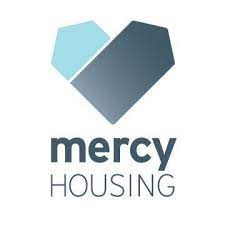Grantee: Mercy Housing Northwest
Timeframe: April 2019 – March 2020 | Amount: $20,000
Mercy Housing Northwest (MHNW) plans to address food insecurity among low-income residents moving into its newest affordable family development, Mercy Magnuson Place. The project will focus on food security needs of these residents, paying attention to providing healthy, nutritious, and culturally-appropriate foods, and thinking about ways to bring food to where they live, minimizing transportation barriers. The long-term goal is to work toward healthy food solutions that could be used at other affordable properties in the region. Food access is part of MHNW’s Health & Wellness priority program area and we integrate healthy eating and a focus on nutrition in multiple ways, including: nutrition education; programs like Dinners Made Easy and Community Kitchens (where residents learn how to cook a healthy meal on a budget and receive the ingredients to make it at home); and support groups where residents encourage each other to get five servings of fruits and veggies, increase their hydration, and stay active. Although this is a planning grant, MHNW will continue to promote the importance of culturally-appropriate nutrition and healthy eating in our programming and in conversations with local grocery stores and potential partners.
The MHNW 2018 Resident Survey asked residents a variety of health and wellness questions. Overall, 46% of head of household respondents in the area replied to questions in a manner indicating food insecurity. Approximately 77% of MHNW’s supportive housing properties reported food insecurity. There was a strong relationship between having children and being food insecure.
Having easy access to affordable, healthy, and culturally-appropriate foods can vastly impact health, education, and development, especially development of children. According to the Food Research and Action Center, lower income communities may be more vulnerable to poorer health due to food insecurity. By increasing food access, particularly healthy food access, for low-income communities, MHNW hopes to assuage worries about having enough food and to contribute to greater community health, while removing the barrier of transportation by bringing a mobile food delivery program.
Funds will be used to primarily support two staff to engage in planning for healthy and nutritious food access solutions. The goal is to build on work MHNW has traditionally done to increase food access:
- Conduct three (3) bilingual focus groups to engage ten residents at each to ask about food security, food access, if they have enough money to buy food, and ideas for improving access.
- Continue to participate in four (4) quarterly Magnuson Park collaborative meetings. These meetings include a cross-sector collaborative involving schools, community organizations, and neighbors to work together in several task forces to address issues on the campus.
- Identify potential partners and conduct outreach to these partners – attend six to eight (6-8) potential partner meetings. Potential examples of these partners include:
- Grocery stores (PCC, Whole Foods, QFC)
- Farmers Markets/Magnuson Park Night Market
- City of Seattle, Office of Sustainability and Environment (managing the Fresh Bucks program providing vouchers for fresh food)
- Retail companies to pilot a mobile food pop up
- Food distribution companies (Sysco)
- Engage potentially with a large retail company to pilot a mobile food pop up/food delivery that will be able to process payments including via EBT.
- Set up and pilot a mobile program that would benefit affordable housing residents at Mercy Magnuson Place and the surrounding community.
About Our Grantee
Mercy Housing Northwest
Mercy Housing creates stable, vibrant and healthy communities by developing, financing, and operating affordable program-enriched housing for families, seniors and people with special needs who lack the economic resources to access quality, safe housing opportunities.
